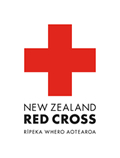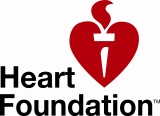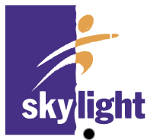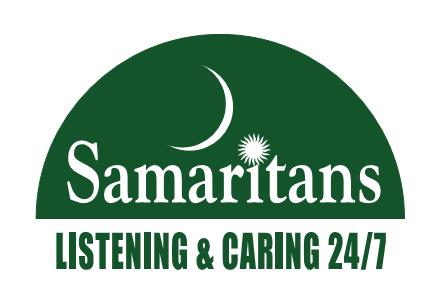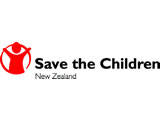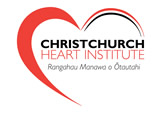-
Safety Tips
It is important to us at A Memory Tree to ensure your personal information is safeguarded and that your online experience is at minimal risk. We have used the most current technology possible to reduce this risk for you but you should personally be aware of the potential dangers of Internet use.
Here are a few tips to ensure your own online safety.Personal Computer Safety
- Make sure you have a basic firewall, anti-virus programme and anti-spyware programme installed on your computer. These are either available to purchase from computer stores, or available to download from the Internet, often for free. Try using a search engine online to find an appropriate one. It is important to keep these updated so you will be protected against the most recent viruses.
- Keep your operating system and browser updated. For example, if you use Windows and Explorer make sure you are receiving regular automatic updates from Microsoft. (check their website for more details, www.microsoft.com).
- Check the safe-guarding measures that your online service provider (such as xtra or ihug) may offer. These could include extra monitoring or filtering capabilities.
- Don't store your personal or financial information (including account passwords) on your computer. Use removable storage like a floppy disc, DVD or a USB stick.
- Be wary of "pop-up" boxes that can appear when using the internet, these can install malicious software on your computer. Always close these by using the X in the top right hand corner.
Personal Data Safety
- If you are using passwords or other sensitive personal information online then steer clear of using shared computers such as internet cafes and libraries. Hackers can use a "keylogger" or other monitoring devices that captures everything you type before it is encrypted.
- Consider who else can potentially access your personal computer. Is there a need to password protect some areas of your computer you may not wish to share with others in the household? If you are a parent/caregiver check you do have access to all the areas your children use.
- The most secure way to enter a site is by typing the URL (or web address) yourself. Never follow a link from an email to a secure website. If you see numbers at the beginning of the URL (or web address), (for example, http://66.102.7.104) rather than a name be very cautious!
- Change your passwords regularly and use strong passwords. Use a combination of letters and numbers that is difficult to guess, not your birthday or your dog's name! (for further information on strong passwords see www.westpac.co.nz)
- Also use different passwords on different sites.
- Always log out of secure sites.
- Ensure your passwords are not accessible to others. Don't share your passwords, write them down or save your them on your computer.
- Be careful how much personal information you give out (especially in chat rooms) as the Internet is a very public place, and you never know who is looking! A good rule of thumb is if you wouldn't put it on a postcard; don't send it from your computer.
Online Safety for Children
- Always maintain clear guidelines and boundaries for computer use for all family members. Put them in writing pinned up near the computer for easy reference, especially for visitors to the house.
- Keep the computer in a family room or other open area of your home.
- Spend time with your child online. Let them show you what they are able to do, and visit their favorite sites and chat rooms.
- Talk to children about what personal information is and why you should never give it to people online.
- Stay informed about Internet safety. See our useful links for further information.
Online Purchasing
Know the Retailer
- Make sure you know you are shopping with. Before you supply personal information, such as credit card details, check the contact details of the company you are dealing with. Look for a physical address, not a P.O. Box number as well as land-line telephone numbers to ensure they are a legitimate trader. The best possible way to check a site's trustworthiness is to call these numbers to ensure you can speak to a real person to verify the company details.
- It is always safest to shop from websites in the same country as yourself as it makes it easier to resolve any problems. With both parties bound by the same laws it is also easier to report any violations to the authorities.
- Be wary of dramatically lower prices for goods, if it is seems too good to be true, it often is!
- Always read a website's privacy policy before giving any personal information. Know what information the website, retailer or supplier is collecting about you, how it will be used and if they share it or sell it to others. Be cautious if you can't find any privacy policy details listed on their website.
- Check for expected delivery dates, shipping and handling fees, warranties, and return policy information. Print these details out and file with your receipt.
Making Safe Payments
- Credit cards are the safest method for online purchases. In the event of a dispute or fraudulent use you will have the support of the credit card company. Never use a debit card for payment as this takes the money directly from your bank account.
- Consider using a secure online payment system service (escrow service), like PayPal, to pay for goods.
- Remember, don't supply personal or financial information to a trader unless you are absolutely certain that it is legitimate.
- Be cautious if you are asked to supply personal details (like date of birth) with your credit card information when it is time to pay. It is not usual to need your date of birth for payment, and this information, together with credit card details, could be used fraudulently.
- Make all of your online transactions with the same credit card, this reduces your exposure to risk.
- When paying look for the padlock in the bottom right of the screen, this lets you know your personal information will be encrypted or scrambled. Also check that the http: on your browser has changed to https:, this indicates that your credit card data is transmitted securely.
- Don't leave your computer unattended when making an online transaction.
- Always log-out when ending a secure transaction.
- Keep a record of what you pay for and be sure to print out receipts and e-mail confirmations of the transaction. Always check your online purchases off against your bank statement.
- Be wary of sending your credit card information by email as this is not encrypted, and copies can remain both on your mail server and theirs!
Links
Here are useful links for further information:- www.netsafe.org.nz an independent non-profit organisation promoting cybersafety education for all New Zealanders.
- www.westpac.co.nz Westpac New Zealand's internet safety tips. Request a FREE copy of their Internet Safety Guide.
- www.wiredsafety.org an American site providing help, information and education to Internet and mobile device users of all ages.
- www.consumeraffairs.govt.nz/scamwatch/ the Ministry of Consumer Affairs website providing consumer information on how to protect yourself from scams.



